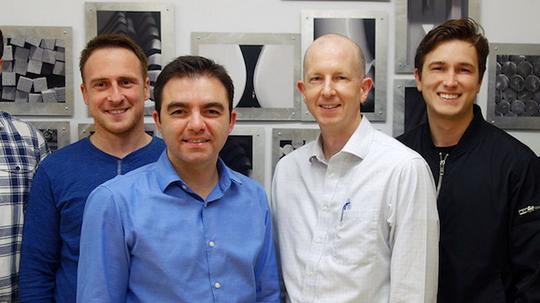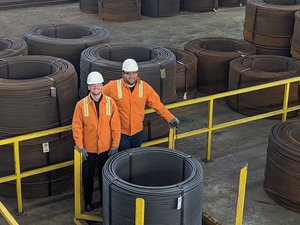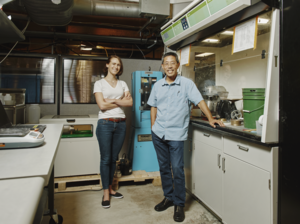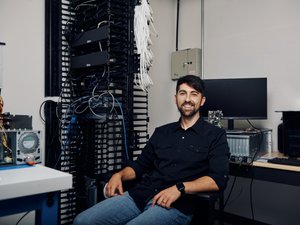
Krenar Komoni knew he was onto something.
A pharmaceutical company had been in the process of shipping $1.5 million worth of medicine across the world, from France to the United States. As the shipment reached the Port of Hamburg in Germany, the company noticed something. The medicine's cold storage was running at 0 degrees Celsius, 20 degrees colder than it should have been — which could have destroyed the drugs. But because the company had a small, Internet-connected tracker attached to the shipment, it was able to alert the trucker delivering the shipment just in time.
"These companies are interested in Tive because they are worried about delays and damage."
That Internet-connected tracker is the flagship product of Tive, the Boston startup Komoni founded in 2015. Using his 12 years of experience in designing wireless communication chips and a crucial insight from his father-in-law's trucking company, the entrepreneur has built a supply chain tracking system that brings the Internet of Things into the shipping world, giving companies a way to intimately track the progress of high-value shipments and whether they get damaged or delayed.
"I still remember the call I got," Komoni said, recalling his experience with the pharmaceutical company, whose name he declined to provide. "I was shocked and amazed and happy."
Based on the early promise of Tive's potential to save companies millions of dollars from shipping disasters, the startup has raised a $3 million seed round led by Cambridge venture capital firm Accomplice, with participation from NextView Ventures, Bolt and Hyperplane, which are all Boston-based VC firms. The startup recently finished in the spring 2017 class of Techstars Boston, the prestigious startup accelerator where Komoni first shared the news of Tive's new funding round.
The startup's customers include Nokia, which invited Tive to showcase at the Hannover Fair in Germany last month, Komoni said. It's also running paid pilot programs with about a dozen other companies. Komoni co-founded Tive with Rob Stevens, a longtime executive at Kiva Systems, the robotics startup Amazon acquired in 2012 for $775 million, who has also served in leadership roles at Backupify, GradCAD and Bolt.
Komoni said the "aha" moment for Tive came when he was helping his father-in-law's trucking company build a tracking system. One day, he recalled, he was hanging out at the company's trucking yard in Worcester and he went into a refrigerated trailer where he found a yellow device sitting on top of a pallet. Turns out, it was a temperature monitor, but the only way to get data out of it was to plug it into a printer and print everything out. "That was a shock to me," Komoni said.
From that moment, Komoni said, he found his calling. "I said, 'I know what I’m going to do with my life,'" he recalled.
Komoni has built Tive as a hybrid system of hardware and software. The Internet-connected tracker can detect temperature, humidity, shock and orientation, all of which can determine whether or not a shipment has been tampered or damaged. The device also tracks location so that companies know in real-time if a shipment will be delayed. All of that data feeds into cloud-based software that lets companies track their shipments and receive custom alerts based on a number of conditions, including temperature and location.
Customers pay for the system monthly based on the number of trackers they use, which Komoni expects to be in the thousands and, in some cases, the hundreds of thousands for some companies.
While getting companies to adopt new technology can always be a challenge, Komoni and Stevens see a major opportunity in the supply chain market, which could be worth tens of billions of dollars. For instance, the National Cargo Security Council estimates cargo losses cost companies a total of $50 billion annually. On the pharmaceutical side, that cost could amount to $30 billion annually, according to Pharmaceutical Commerce's 2016 Biopharma Cold Chain Sourcebook.
"Companies that ship high-value stuff, like electronics or drugs or automobile parts — these companies are interested in Tive because they are worried about delays and damage," Stevens said, which can cause massive disruptions.








